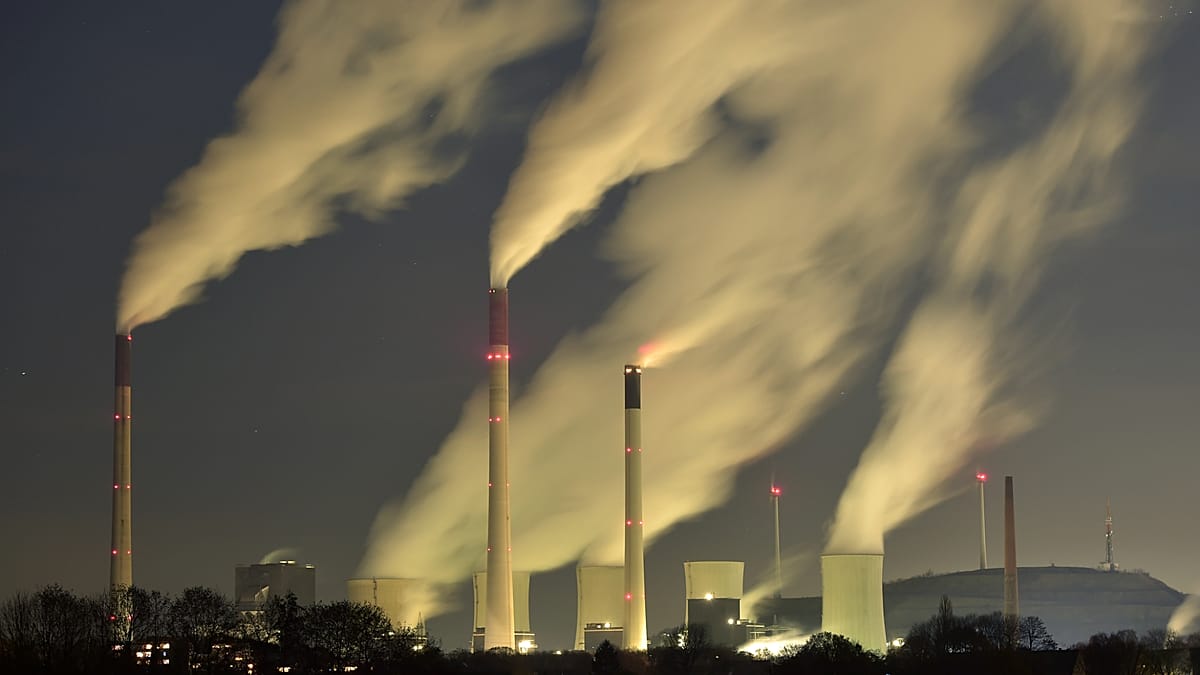European environment ministers on Wednesday backed a watered-down amendment to EU climate law that includes several flexibilities aimed at helping member states cut greenhouse gas (GHG) emissions by 90% by 2040.
The revised bill is a compromise that the Danish president’s office, which leads the EU’s 27 countries, felt was necessary to conclude the deal.
“We have listened and worked together with all parties around the table and we have reached a very good compromise,” European Commissioner for Climate Change Wopke Hoekstra told reporters.
“We agreed to a legally binding 2040 headline target of -90%, a domestic target of 85% and an international credit of up to 5%. We reaffirmed the flexibility we have put on the table,” he explained.
After a political deadlock and lengthy talks on Tuesday night, ministers agreed to increase pollution credits for industry to ease progress towards climate neutrality by 2040, with the deal sealed on Wednesday morning.
The impasse threatens the bloc’s ability to agree on binding climate change targets and is seen by many as a major impediment to Europe’s industry’s ability to thrive.
The deal settles pollution credits, so-called international carbon credits, at a maximum of 5%, up from the 3% proposed by the European Commission. However, if the block deviates from the 90% reduction path, up to an additional 5% could be considered as part of the revised terms.
Finland, Germany, the Netherlands, Portugal, Slovenia, Spain and Sweden were among the most ambitious countries to maintain the 3% pollution credit target, with France and Italy calling for 5% and Poland 10%.
Environment ministers agreed to keep the EU Executive’s proposed 2036 start date for pollution credits. However, the trial period from 2031 to 2035 will be considered.
“The trial period is to show some parties that we are in favor of using these credits, but it could backfire. We need scientific backing,” one EU diplomat told Euronews.
Carbon credits are tradable certificates that industries can use to offset a portion of their emissions and create economic incentives to reduce pollution.
Each credit is equivalent to one tonne of CO2 removed or sequestered from the atmosphere. Environmental groups have spoken out against carbon credits, arguing that they do not reduce pollution but simply transfer it to low-income countries.
Agreeing on 2040 climate targets would require concessions from more ambitious countries, which some considered “very painful”, but EU diplomats said reaching a conditional majority was necessary and essential to achieving a deal.
The Czech Republic, Hungary, Slovakia and Poland did not support this legal reform. Belgium and Bulgaria abstained.
The EU is amending European climate law, which will put the region on a path to climate neutrality by 2050 compared to 1990 levels. The law obliges the EU to set a 2040 climate target to bridge the gap between 2030 and 2050 climate targets.
Several EU countries are concerned that efforts to reduce GHG emissions by 2040 will seriously undermine the competitiveness of European industry. They argue that stricter climate policies and stronger environmental regulations will increase production costs, especially in energy-intensive sectors such as steel.
The objective under the bloc’s climate law is to decarbonize traditional heavy industrial processes through technologies such as carbon capture and electrification. Clean technologies such as heat pumps and electric vehicles are also part of the process of gradually decarbonizing the region’s economy.
Many EU countries that are doing well in clean power generation or are generally on track to achieve climate neutrality support 2040 climate change targets, but others are more cautious.
At the same time, the EU is under pressure to take a clear and ambitious position at next week’s UN climate change summit, COP30. This is because the EU’s national climate targets will form the basis for calculating the EU’s 2035 climate targets, which will be announced in Belém, Brazil.
Enabling policy conditions
International carbon credits, carbon removals and amendments are among the flexibilities that helped forge a delicate deal on Wednesday, even as more ambitious member states expressed concerns about the bloc’s credibility in the eyes of investors who need political certainty to deliver on clean technologies.
The latest amendments to the document, seen by Euronews, also included an emergency brake proposed by France related to CO2 emissions and removal from land-related activities. However, this measure can only be triggered after five years from the law’s entry into force.
With forest health declining and carbon capture and storage technologies still underperforming, the emergency brake is trying to find other ways for EU countries to offset emissions that would be covered by natural carbon sinks.
“We need to have realistic expectations about what contribution CO2 removal from land and forests can make… We need safeguards that other sectors cannot cover the shortfalls in this sector,” said one EU diplomat.
“The risks of not having a European climate change law are greater than having amendments,” one EU diplomat from an ambitious country said on Tuesday, noting there was pressure to take a position.
After months of deadlock, the most ambitious countries believe that reforming their domestic climate laws is paramount to finally agreeing on the global climate goals set out by the EU at COP30.
One EU diplomat said, “If we can enact 90% climate-related legislation, we can meet the 2035 climate goal set out at COP30,” referring to the statement of intent agreed by EU environment ministers in September, which ranged from 66.25% to 72.5%.
Balancing climate, defense and competitiveness
Despite supporting changes to the EU’s climate change law, German Environment Minister Carsten Schneider said Wednesday’s vote was a matter of self-determination and self-sufficiency for the bloc, underscoring the competitiveness challenges facing the bloc.
“On the one hand, we are being challenged by a great partner of the United States who has said goodbye to international climate protection policy. On the other hand, we have to deal with China on the competitive front,” Schneider told reporters.
The German minister insisted that the EU needs to be at the forefront of clean technology and innovation, noting that these will benefit future markets.
“The combination of environmental protection, climate protection policy and economic policy is central,” the German minister added.
Czech Environment Minister Petr Hradik said Middle Eastern countries’ economies were in trouble and advocated technological neutrality to allow member states to use the most cost-effective means to meet climate goals.
“It should also be noted that in some countries there is a large proportion of industries that are difficult to decarbonize, such as chemicals, steel, cement and glass, where technology is not sufficiently advanced,” Hradik added.
In addition to the delicate balance between competitiveness and climate ambitions, Romania recalled the current geopolitical situation, pointing out the “bloody war” on the EU-Romania border and how much the situation has changed since the adoption of the Climate Law in 2021.
Romania’s Environment Minister Diana Anda Buzoianu said that the current geopolitical situation “requires citizens and businesses to bear the burden of defense spending that has increased sharply in a short period of time.”
Tuesday’s vote ended the political deadlock at Council level and opened the door for the European Parliament to consider the issue.
Members of the European Parliament will now vote on climate change targets for 2040 and continue negotiations with EU countries.








